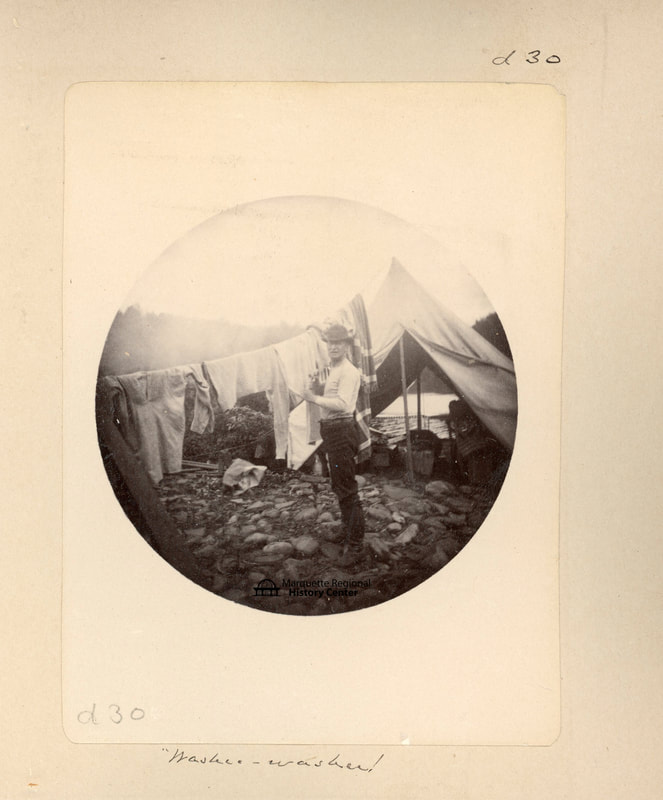Adam Berger
The ship cruised on, stopping at the Montreal River for the night. The men set up camp between the river and Superior, the Apostle Islands visible in the distance. Before turning in for the night, J.M. Longyear asked his companions if they would like to go look at waterfalls in the morning. Most of the crew declined but Mox was willing to go. One man said he’d rather do laundry.
The ship cruised on, stopping at the Montreal River for the night. The men set up camp between the river and Superior, the Apostle Islands visible in the distance. Before turning in for the night, J.M. Longyear asked his companions if they would like to go look at waterfalls in the morning. Most of the crew declined but Mox was willing to go. One man said he’d rather do laundry.

 RSS Feed
RSS Feed